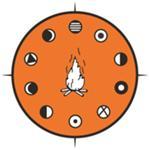Denunciation of another part of our history: Publication of a research report on free and informed consent and imposed sterilizations among First Nations and Inuit women in Quebec Français
WENDAKE, QC, Nov. 24, 2022 /CNW Telbec/ - For decades, several national and public inquiries have denounced and brought to light the acts of systemic discrimination experienced by First Nations, Inuit and Métis in health care facilities in Canada and Quebec. In 2020, we once again witnessed such acts with the death of Joyce Echaquan.
Until very recently, no scientific data was available in Quebec to assess the extent of the phenomenon among First Nations and Inuit women, to better understand the circumstances in which free and informed consent is not respected, and to know the impacts of this violation of rights on women's lives.
In the spring of 2021, a research project on free and informed consent and imposed sterilizations among First Nations and Inuit women in Quebec was publicly launched.
This is the first research in Quebec to document the imposed sterilizations of First Nations and Inuit women.
Data collection
To draw a specific portrait of this issue in Quebec, the First Nations of Quebec and Labrador Health and Social Services Commission (FNQLHSSC) and the Université du Québec en Abitibi-Témiscamingue (UQAT) have combined their knowledge while partnering with many representatives of First Nations, Inuit and other organizations.
Between May 2021 and January 2022, First Nations and Inuit women in Quebec, aged 18 and over, who believe they have been sterilized without their consent or been subjected to obstetric violence, were asked to share their testimonies in a confidential, respectful and safe space.
The data collection made it possible to collect testimonies from people from many different nations and peoples. According to the testimonies obtained, the last case of imposed sterilization recorded in Quebec dates from 2019.
Calls to action and recommendations
Four major findings emerge from the testimonies received: the undermining of the free and informed consent of patients; mistrust, fears, and avoidance of health services; differential treatment in hospitals; and the ages of the patients and the circumstances of sterilization.
In support of the findings and recommendations stemming from this research, the Chiefs of the Assembly of First Nations Quebec-Labrador (AFNQL) mobilized by adopting a declaration of commitment that denounces these practices and demands that they cease immediately within the Quebec health and social services system. The AFNQL, the FNQLHSSC and many partners will continue their efforts to ensure that these practices do not happen anymore and that all First Nations and Inuit women are treated with respect and dignity.
"This research has made it possible to reveal the high degree of colonial violence of an odious and little-known reality, stemming from genocide, in a context as intimate as that of gynaecological and obstetrical care for our First Nations and Inuit mothers and sisters. The imposed sterilization suffered by Indigenous women is a violation of their physical and psychological integrity as well as a theft of their fundamental right to bear children. The analysis of the testimonies collected has unfortunately led to the conclusion of the presence of systemic racism in the public services in Quebec towards the First Nations and Inuit. The AFNQL salutes the work of the research team and wishes to recognize the immense courage of these women for having shared their words in complete confidence in order to succeed in breaking the silence on non-consensual and imposed interventions." – Chief Ghislain Picard
"Indigenous peoples come from cultures with holistic fundamental structures and values. Each has an important and sacred role within their community. Women constitute the foundation of Indigenous communities, they are the givers of life and play a key role in passing on our languages, cultures, teachings and traditions, while honouring our connection to the Earth as people. Cutting this connection with motherhood also means cutting these connections and this cultural continuity for many." – Chief Adrienne Jérôme
"We must come together in order to implement culturally safe practices. Men play an equally crucial role: we must take action by refusing this kind of treatment regardless of the environment and by showing respectful behaviour for women in all spheres of daily life."
– Derek Montour
Access the results of this research now by reading the report:
consult report
For more information, visit https://sterilisationsimposees.cssspnql.com/?lang=en.
SOURCE Assembly of First Nations of Quebec and Labrador

Sources: Catherine Bérubé-Leblanc, UQAT, Information Officer, [email protected], 819-762-0971, extension 2079; Zani Boillat, FNQLHSSC, Communications and Social Media Advisor, [email protected], 418-842-1540, extension 2304; Marie-Céline Einish, AFNQL, Communication Advisor, [email protected], 418-254-4620

Share this article